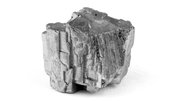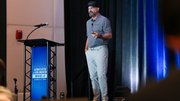Blog
Kodak President: Internal buyout a 'win-win'
April 30, 2013
Eastman Kodak Co. announced an innovative bankruptcy emergence plan today, involving the spin off of its Personalized Imaging and Document Imaging Businesses to the U.K. Kodak Pension Plan (KPP), its largest creditor. Under the proposed agreement, KPP will pay $650 million in cash and in non-cash considerations for businesses, as well as settling $2.8 billion in claims by KPP against Kodak.
The businesses under the yet-to-be named KPP-led company will include the personalized imaging business (film and paper, kiosks, and retail portraiture) and document imaging business.
"In a sense it's an internal buyout, because the members of the KPP are former and current Kodak employees," said Laura G. Quatela, president, Eastman Kodak Co., and president, Personalized Imaging. "In another sense, it's a completely separate kind of deal, because they are whole other company. After the transaction, there will be no connection back to Eastman Kodak Co."
"Throughout the process, we haven't found any other models for this type of arrangement," she added. "So this may be the first time an employee pension fund purchased the assets from the employer. It's a win-win all the way around."
Quatela mentioned the architect of the deal, Steven Ross, was brought aboard years ago as an advisor to the pension fund. "We were hopeful as a team we would be able to sell all these businesses together and that's what we've accomplished.
The announcement negates the announcement last week of the sale of the Document Business to Brother Industries. The Brother bid was subject to court approval, she said, but it was withdrawn.
"Brother knew their bid was subject to a higher and better bid, and that is what played out."
While the new KPP-led entity will have the rights to use the Kodak name, the actual name of the company has not been determined.
"We're expecting to announce the company name before closing, and we are projecting the closing by the end of the third quarter," she said.
She also added that "owners to be" have said there is no intention of moving the operations of the new company. Some may be groups may be combined, depending on the situations.
"One of the fortunate aspects of this deal is we can continue operations uninterrupted."
 ChatGPT
ChatGPT Grok
Grok Perplexity
Perplexity Claude
Claude










